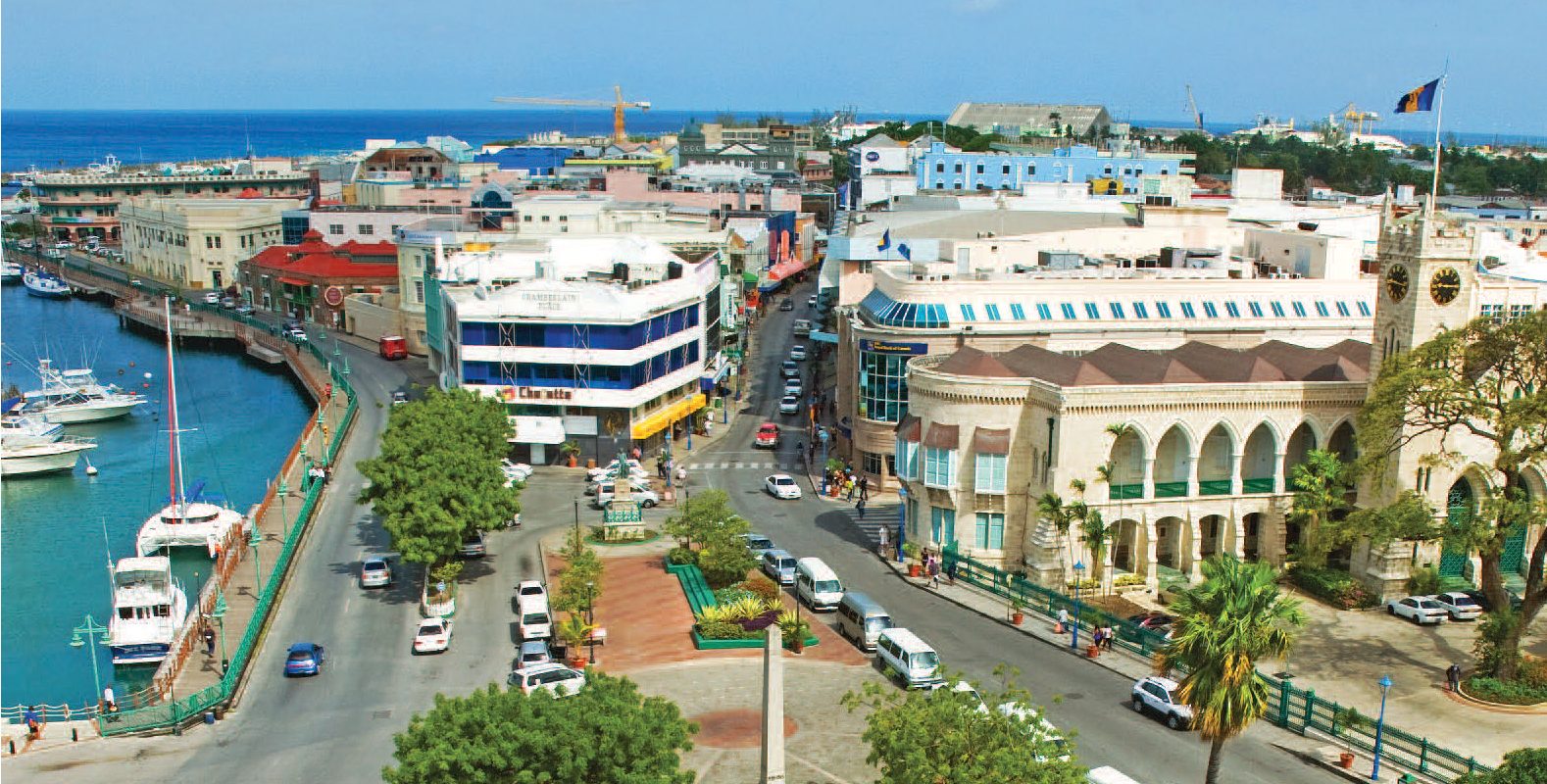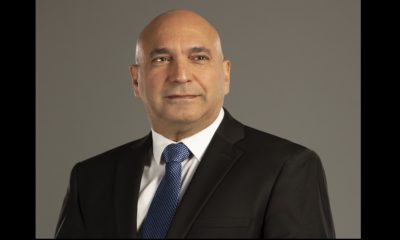OVERVIEW
In 2018 Barbados strengthened its reform impetus to start addressing its precarious balance of payments and fiscal situations. In response to the worsening fiscal and external liquidity position, the Government of Barbados (GOBD) announced in June the Barbados Economic Recovery and Transformation Plan (BERT), which aims to restore macroeconomic stability and place the economy on a path of strong, sustainable
and inclusive growth, while safeguarding the financial and social sectors. Included in BERT was the suspension of payments due on debt owed to external commercial creditors and a comprehensive domestic and external debt restructuring.
Fiscal austerity measures related to BERT and the challenging macroeconomic situation negatively impacted the non-traded sectors.
These effects more than offset modest gains in tourism and led to economic contraction of 0.6% in 2018. Inflation fell, but remains above its long-term trend, while public sector layoffs may have contributed to rising unemployment in the fourth quarter (Q4) of the year.
The public finance outturn improved due to deeper fiscal austerity measures, and contributed to a decline in public debt.
Gross international reserves returned to the international benchmark of three months of import cover.
KEY DEVELOPMENTS IN 2018
Real gross domestic product (GDP) contracted by an estimated 0.6% in 2018, (see Chart 1). Despite modest gains in the tourism sector (where activity grew by 0.6%), the decline in overall GDP was due to a 7.0%
fall in construction output and declines in other non-traded sectors such as distribution; business and services; transportation; storage; and communication.
The number of overnight arrivals was 2.8% higher than in 2017, due to increased marketing and additional airlift. However, growth in tourism was constrained by reduced length of stay as more visitors arrived from the United States and Canadian markets compared with the longer-staying visitors from the United
Kingdom (UK). This may be due in part to slower economic growth in the UK and a weaker Pound sterling. Cruise ship passenger arrivals were down, as the number of ship visits fell by almost 10.0%, after the re-routing of vessels in 2017, related to the impact of Hurricanes Irma and Maria.
Fiscal austerity measures related to BERT and concerns about the challenging macroeconomic situation adversely impacted the performance of the non-traded sectors.
Large-scale public and private sector projects were delayed, and the public sector layoffs in the final quarter of 2018 impacted domestic consumption with negative pass-through effects to the rest of the economy.
Inflation pressures eased in the second half of the year. Inflation declined to 3.7% from 4.5% in 2017. These are higher price increases than the trend in previous years, and are mainly due to the impact of the National Social Responsibility Levy (NSRL) and higher international crude oil prices. The removal of NSRL in July 2018, and the softening in international crude oil prices in Q4, both helped to reduce the domestic inflation rate.
The average unemployment rate fell to 9.2% for the four quarters ending September 2018. However, public sector layoffs in Q4 may have contributed to a higher unemployment rate in December 2018.
The fiscal outturn improved as a result of deeper austerity. The primary balance strengthened to 3.4% of GDP for the nine-month period to December 2018, above both the targeted primary balance of 3.3% for
Fiscal Year (FY) 2018/196 and 3.1% in the previous FY. The fiscal austerity programme was underpinned by lower interest payments associated with the sovereign debt restructuring and reduced transfers and subsidies, particularly to state-owned enterprises (SOEs). Broad-based reforms8 to SOEs are underway, on a phased basis, to streamline their operations.
On the revenue side, increased collections (due mainly to a boost in corporate tax receipts9) also contributed to better fiscal performance. New taxes10 were introduced to widen the tax base and the NSRL was removed. Corporate tax rates were also revised as a result of the Organisation for Economic Cooperation and Development’s Base Erosion and Profit Shifting initiative. The improved fiscal performance contributed to the public sector debt declining to 126.9% of GDP at the end of December, from 148.4% in March. BERT targets a public sector debt to-GDP ratio of 100% by FY 2022/23 and 60% by FY 2033/34.
Commercial banks continued to be characterised by high levels of excess liquidity. The excess cash reserve ratios of commercial banks increased to 16.2% as at December 2018 from 14.1% in the same period in 2017. In the same period, credit to the private sector increased by $227.1 million to $5.8 billion. Meanwhile, the ratio of non-˗performing loans to total loans increased slightly to 11.2% at the end of 2018, from 7.9% at the end of 2017. The reported capital adequacy ratio declined slightly to 15.6%, having been 17% one year before.
The Central Bank of Barbados (CBB) eased its monetary policy stance by lowering the reserve requirement. Improvements in the government fiscal position in 2018 prompted CBB to ease its monetary policy stance. This was a reversal of the December 2017 phased increased in the Barbados dollar securities reserve requirement ratio, which had been intended to provide liquidity support to GOBD. CBB reduced the securities reserve requirements ratio for commercial banks from 20% to 17.5%, effective November 2018.
The debt restructuring came in the immediate aftermath of the adoption of the new accounting standards ‒ International Financial Reporting Standard (IFRS) 9 ‒ with implications for the balance sheets of institutions that held government securities. In particular, IFRS9 requires financial institutions to make loss provisions against all exposures with inherent credit risk, rather than against only those assets that have actually defaulted.
These implications have been reduced somewhat following recent improvement in the country’s credit rating.
Gross international reserves were boosted with the support of international financial institutions. These reserves, which reached a low of 5-6 weeks of import coverage at end of May 2018, more than doubled to 3.4 months as at December 2018).
Accumulation of international reserves was helped, in part, by external financing from the Caribbean Development Bank (CDB), the International Monetary Fund, and the Inter-American Development Bank.
Barbados received its first domestic credit rating upgrade in several years. Standard & Poor’s (S&P) raised its long and short-term local currency sovereign credit ratings on Barbados to ‘B-/B’ from ‘SD/SD’ (selective default) in November 2018. S&P also affirmed its ‘SD/SD’ long and short-term foreign currency credit ratings on the island, and its ‘D’ (default) ratings on Barbados’ foreign-currency issues. The foreign currency rating will remain at Selective Default until Barbados resolves its foreign debt restructuring.
OUTLOOK
CDB expects real GDP growth to be flat in 2019. Economic activity is premised on favorable tourism performance due to growth in major tourism source markets, the opening of Ross University School of Medicine (RUSM), and an anticipated expansion of airlift. The influx of medical students associated with
RUSM may also positively impact other industries such as distribution and transport. This will more than offset the expected drag on economic activity related to the commencement of the next phase11 of BERT and the continuation of fiscal austerity measures.
There is notable upside risk to the forecast depending on the timing of planned private sector projects and possibly higher external demand for financial services as investor confidence strengthens. If the planned private sector projects materialise in the first half of 2019, growth is likely to be positive. On the downside, tensions in the United States of America and Europe (BREXIT) could dampen growth prospects. Also, the Barbados economy remains vulnerable to changes in the price of international commodities and the adverse impacts of climate change and sea level rise. The negotiation of the external debt restructuring is also important for external financing flows.
Source: Regional Economic Summary 2018 Caribbean Development Bank


 Businessuite Markets1 week ago
Businessuite Markets1 week ago
 Businessuite News242 weeks ago
Businessuite News242 weeks ago
 Businessuite Markets2 weeks ago
Businessuite Markets2 weeks ago
 Logistics & Transportation2 weeks ago
Logistics & Transportation2 weeks ago
 Leadership Conversations3 days ago
Leadership Conversations3 days ago
 Businessuite Markets2 weeks ago
Businessuite Markets2 weeks ago
 Businessuite Markets2 weeks ago
Businessuite Markets2 weeks ago
 Businessuite News24 International3 weeks ago
Businessuite News24 International3 weeks ago















